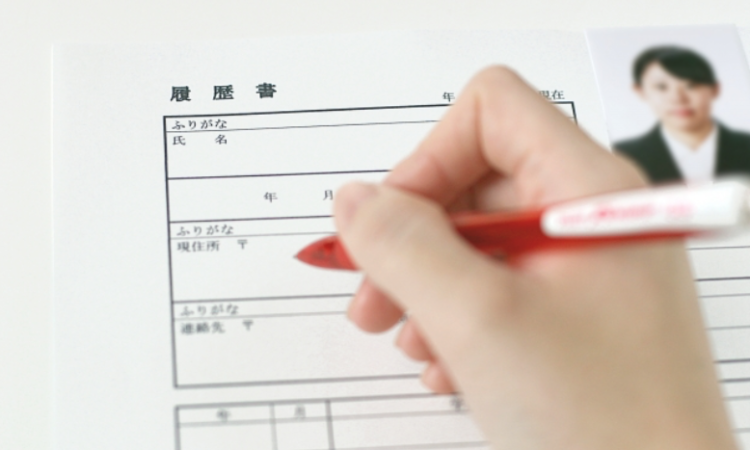This post is also available in:


When you begin part-time jobs in Japan, you will hear many Japanese terms that are not ‘proper japanese’; there are many terms and convention that are made among part-time workers. In this article, I am going to introduce the five frequently-used special terms in part time jobs.
1. People say “Good Morning” even if it is afternoon
If you have worked in part-time job in Japan, you would probably realize that people greet their colleagues by saying ‘Ohayougozaimasu’, which means ‘Good Morning’, even if their shift is not in the morning. This is one of the most common special terms in part time job. No matter what time they enter their work-place, people will say ‘good morning’ to greet their colleagues.
You have to aware that this rule only applies to part-time jobs, and not in any office. If you are hired as a salary-man, you are expected to greet by saying the appropriate greeting terms, such as ohayougozaimasu(good morning), konichiwa (hello) and Konbanwa (good evening). Therefore, you got to be very flexible when to use the appropriate term!
2. What time should you go to your workplace when you are told to ‘Naru-Haya’?
Sometimes when you ask your shop manager what time you should go to your workplace, and you might get a answer like this, ‘Naru-haya de!’
You might feel confused about this unidentified language; what does naru-haya means? Naru-haya is the short form of “narubeku-hayaku”, which can be translated into ‘come (to the work place) as early as you can!’’ in this context. ‘Narubeku’ in Japanese means ‘if possible’ or ‘as…as possible’ When it combines with the ‘Hayaku’, which means ‘early’ or ‘fast’, in this context it becomes ‘to come as early as possible!’ Therefore, when you are told to come ‘Naru-haya’ that means you are told to come as early as possible.
When you are told to come Naru-haya, the most appropriate reply to tell the manager what time you can come. If you are working in a Izakaya that only opens at night, you should not come at 13:00 unless the manger told you to do so. You should inform your manager what time you can come so that the manager can have the idea on what time you are coming!
3. ‘Tips’ is not always a good thing in Japan!
If you are working in a restaurant, sometimes your colleagues may tell you, ‘There are “tips” left on the table,’ I know in United States and many European countries, the customers are expected to leave tips at a restaurant. However in Japan, there is no ‘Tips’ culture exists in Japan, and your guests are very less likely to give tips to you. Then why your colleagues tell you that there is ‘tips’ on the table?
In part time jobs in Japan, the part-time workers call the pieces of broken glass “tips”. So when your colleague tells you that there are ‘tips’ on the table, they are telling you to be careful. I have no idea where the word is originated from, but in Japan there are words that came out of nowhere, and it is very hard for people to find the origin of the word.
4. Kin-tai, an important word to know in Part time work
In the group chat of your part time work, or any notification you may often see the word 勤怠(Kin-tai). So what exactly does this word means?
Kintai means the total attendances and absences in your part time work. There are some companies that take this in account when they decide the salary of their workers. The understanding of Kin-tai of the workers is very essential for the managers to know about their workers. At the same time, the management of Kintai is a good way to maintain the workers’ motivation. Therefore, if you want to give your boss a good image, try not to absent from work, and give a decent excuse when you are not able to work!
Even if you are sick and you are not able to work, you have to inform your manager early; for example the day before you take a rest. It would be great if you are able to find someone who can substitute your job as in Japan, taking responsibility for your action is very important. You are expected to solve the problem by yourself when you are not able to work!
5. The word ‘irasshaimase’ what exactly does it mean?
If you have ever been to Japan, you will hear this. And when you work as a part-time worker, you will be the one who is saying this phrase. However, I believe there are many foreigners that are not aware of what exactly does it mean, and they are just saying the word without knowing its actual meaning.
First, the verb iru means to be or to exist. And maybe you have known that there are different levels of politeness in the Japanese language depending on the prefix, suffix and the conjugation. Therefore, when you want to say iru in a higher politeness level is irasshairu, irrasshaimasu.
You then add mase at the end of the word for the following reasons. Mase is a strong imperative form to be added to a verb. Therefore, Irasshaimase is telling the customer in a strong as well as polite way to tell them to be or to come!
After understanding the reason why we repeatedly saying this term when the guest enter your shop or restaurant, you should understand why the people are saying it.
To conclude, there are various unique and special words that are frequently used by the part-time workers. You might get confused by these terms but do not worry, even native speakers will get confused when they hear these irregular terms at the first time. Therefore, if you are not sure what the terms means, do not hesitate to ask your colleague or check it up on the Internet!
Would you like to teach children English at home?
Well, let Guidable Jobs help you! Just click here and apply for this job!
Of course, you may search for more job information on Guidable Jobs.
Link: https://jobs.guidable.co/








![Regular Procedures for Foreigners Entering Japan [Part.1]](https://guidable.co/wp-content/uploads/2016/07/スクリーンショット-2016-07-24-14.35.21-750x450.png)